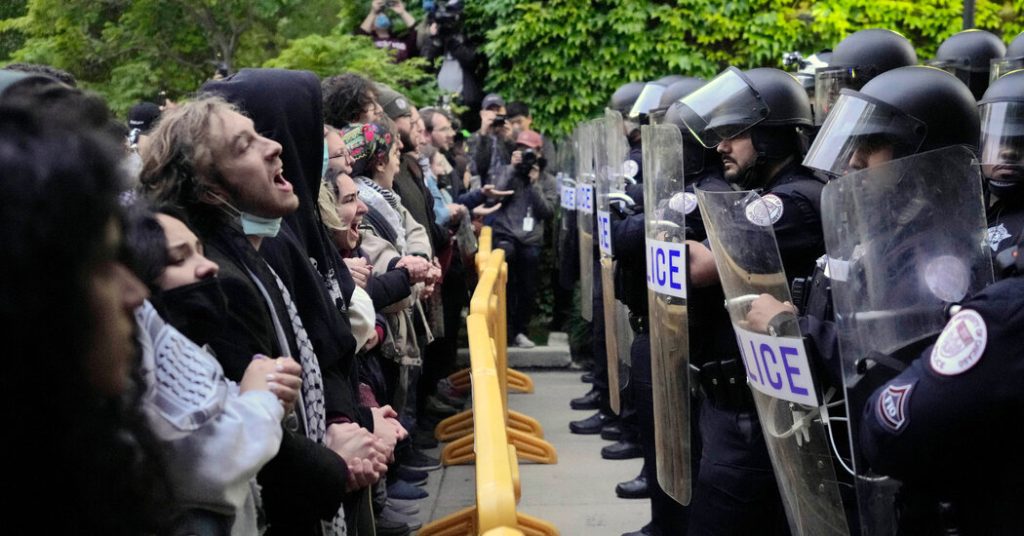Pro-Palestinian protesters at the University of Chicago stormed the Institute of Politics building, causing damage and confronting the institute’s director, Heidi Heitkamp. The protesters demanded that Heitkamp leave her office, but she refused. The demonstration continued outside the building after protesters were removed by the police. The group occupying the building cited the university’s ties to Israel as their reason for the protest, with videos showing protesters climbing through windows to exit the building.
University officials stated that protesters had blocked the building’s entrance, damaged property, and disregarded orders to leave from law enforcement. While the university supports a wide range of views, protests must not compromise public safety, disrupt operations, or involve property destruction. Earlier in the day, a board meeting was held at the institute with founder David Axelrod, who was a senior adviser to President Barack Obama. The Institute of Politics is located near a Hillel and Chabad, where some students were having a Sabbath dinner during the demonstration. Counterprotesters displayed Israeli flags, and nearby residents played rock music to drown out protest chants.
A sign at the Institute of Politics was covered with a placard calling for a “permanent cease-fire now,” with demands hanging from the building, including one to “abolish the university.” On the same day, protesters at the University of Pennsylvania attempted to occupy a campus building, resulting in arrests and the building being cleared by police. Fisher-Bennett Hall, where the incident occurred, is located across from College Green, where a previous protest encampment was removed by police. Journalists Mattathias Schwartz and Jeremy W. Peters contributed reporting on both incidents.
The protest at the University of Chicago highlighted tensions surrounding the Israeli-Palestinian conflict and the university’s connections to Israel. The demonstration escalated from storming the building to confrontations with university staff and law enforcement. The continued presence of protesters outside the building drew attention from counterprotesters and nearby residents, creating a noisy and contentious atmosphere. Calls for a cease-fire and demands to abolish the university reflected the protesters’ strong convictions and commitment to their cause.
The response from university officials emphasized the importance of allowing diverse viewpoints to be expressed while maintaining safety and order on campus. The decision to clear the building and address the protest through law enforcement indicates a commitment to upholding the university’s policies and values. The involvement of prominent figures like David Axelrod in the board meeting underscored the significance of the events at the Institute of Politics. Similar protests at other institutions, like the University of Pennsylvania, suggest a broader movement of activism on college campuses regarding the Israeli-Palestinian conflict.
Overall, the protests at the University of Chicago and the University of Pennsylvania reflect a growing intensity in activism surrounding the Israeli-Palestinian conflict, with students and protesters taking bold actions to draw attention to their cause. The clashes between protesters, university officials, and law enforcement demonstrate the complexities of balancing free speech with safety and order. As these incidents unfold, they raise questions about the role of universities in facilitating dialogue on contentious issues and managing the resulting tensions. The actions of both protesters and authorities will likely spark further debate and reflection within the academic community and beyond.


